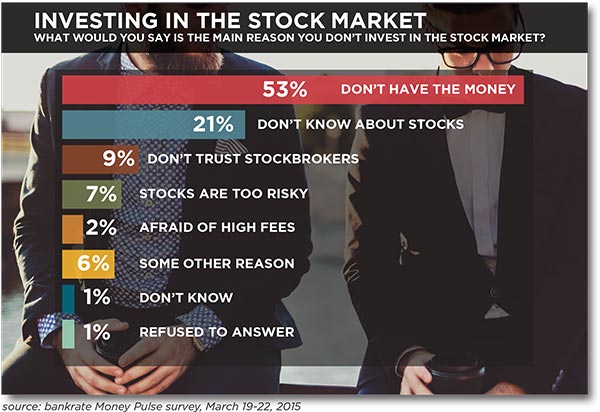
Millennials, the group of Americans born between the early 1980’s and the mid- 1990’s, are the largest generation in the U.S., representing one-third of the total U.S. population in 2013.
Perhaps the most important marker for Millennials is that many of them have come of age during a very
difficult time in our economy. The oldest Millennials were just 27 years old when the recession began in
December 2007. As unemployment surged from 2007 to 2009, many Millennials struggled to find a place in
the labor market. Millennials made important decisions about their educational and career paths, including
whether and where to attend college, during a time of great economic uncertainty.
Millennials early adult lives have been shaped by the experience of establishing their careers at a time when
economic opportunities are relatively scarce. Today, although the economy is well into its recovery, the
recession still affects lives of Millennials. This report takes an early look at this generation’s adult lives so
far, including how they are faring in the labor market and how they are organizing their personal lives. The
Millennial generation is marked by transformations at nearly every important milestone: from changes in
parenting practices and schooling choices, to the condition of the U.S. economy they entered, to their own
choices about home and family.
Millennials are the generation that will shape our economy for decades to come.

Baby Boomers who lost part of their nest eggs in the recession face a difficult retirement, but those born
between 1979 and 1994, who have come to be known as the Millennial generation, or Generation Y, face the
most uncertain economic future of perhaps any generation in America since the Great Depression.
Two decades of stagnant wages were followed by the Great Recession, and the income and net worth gap
between the rich and the middle class is at its highest level in the past 90 years. The collision of financial reality
with the habits and attitudes of this generation promises to create a severe economic dilemma for many of
them. Retirement is just a word, not a goal. Most Millennials believe they will work forever.
Current Statistics
Although Millennials have frequently been labeled as materialistic, somewhat spoiled and saddled with a sense
of entitlement, many millennials feel that they will not be able to achieve material goals like finding their dream
job, buying a house or retiring until much later in their lives than their parents did. Paying off student loan
debt has become increasingly difficult for many who are struggling with unemployment and low-paying jobs.
The recession left over 15% of Millennials in their early twenties out of work, many of whom are still struggling
to get their feet on the ground. This will hurt them long after they do get work. Economic studies of those
who were unemployed during the recession in the early 1980s revealed that they were still behind schedule
financially 20 years later.
Investment Philosophy
The economic fallout from events such as 9/11 and the market crash of 2008 has resulted in the adoption
of an increasingly global mindset, with factors such as social responsibility and the environment frequently
playing a key role in where Millennials place their money. Many Mellennials are choosing to follow either their
own instincts or go along with their peers when it comes to investment choices. Studies have shown they have
become somewhat distrustful of the financial advice given to them by their parents or financial professionals,
who they often view as salesmen with only their own best interests at heart.
The growing movement in the financial industry towards compensation models that are based upon investment
performance rather than commissions has yet to make an impression on this generation. Millennials are also
more interested in having a personal connection with those who manage their money, despite their comfort
level with the use of mobile and online technology to perform many investing functions.

Spending Habits
A recent survey from the American Institute of Certified Public Accountants shows that over three quarters
of millennials want to have the same clothes, cars and technological gadgets as their friends, and that around
half of them have to use a credit card to pay for basic daily necessities such as food and utilities. Over 25% of
Millennials had late payments or are dealing with bill collectors, and well over half are still receiving some form
of financial aid from their parents. One of the most disturbing findings of this study reveals that seven out of 10
young people define financial stability as being able to pay all of their bills each month. The study also outlines
a difference in money habits between the genders, where men feel more inclined to keep up with their friends
in terms of material goods while women tend to be more frugal and place a higher emphasis on saving money.
Throughout every sector in the economy, Millennials are driving changes. Now, Millennials are taking advantage
of a variety of high-tech and social media tools that allow them to invest their investable/discretionary assets
into investment vehicles of their choice. Given their love for anything tech-related, it should come as little
surprise that Millennials that do invest are now leveraging social media, networking platforms, blogs, and
mobile applications to do everything from following stock-picking tips to finding on-line financial advice to
placing actual trades.
One thing is certain: When it comes to investing, Millennials are taking a completely different approach from
that of their parents and grandparents. At WT Wealth Management we think the impact of Millennials deserve
a deeper look.

How Millennials Invest Differently
No longer are stock tips being passed along on the golf course. When today’s generation of investors want to
purchase shares of stocks, they do not reach for the telephone to ring up their broker. Today, all it takes are a
few clicks on an application for Millennials to review a prospectus, get advice, and even make an investment.
According to The Wall Street Journal, more than 30 percent of Millennials surveyed recently stated they are
more loyal to brands that are up-to-date in regards to technology and wouldn’t even consider a investing
platform that didn’t involve cutting edge technology.
While Millennials can sometimes be wary about jumping into investing coming off the heels of the recession,
the availability of social media tools is making it easier and more comfortable for this age group to learn about investing. A recent survey found that 45 percent of Millennials are more interested in investing in the stock
market today than they were just 3 years ago.
New Breed of Investing Tools
Among the most popular social media tools currently being leveraged by Millennials are on-line forums, chat
rooms and blogs. Social media investing sites makes it possible for peers to help one another invest in the
stock market. Both ‘newbies’ and experienced investors are able to share information and tips. Social Media
platforms even makes it possible for new investors to imitate the actions of investors with a proven track
record.
Through increased transparency combined with a distinctive social layer, various trading platforms makes it
possible for users to build portfolios based on the collective knowledge contributed by peers and experienced
traders. As a result, novice investors are able to become involved in investing using a social networking platform
environment with which they are already well-acquainted.

The Potential Drawbacks to Technology-Based Investments
If there is a drawback to the availability of social media for investing, it is the potential to develop unrealistic
expectations for immediate results. As a whole, the Millennial generation are accustomed to fast results.
Frequently dubbed as the instant gratification generation, Millennials check their phones as many as 73 times
daily. In an age where services, products, and information are just a tap or a swipe away, it can be easy for
Millennials to fall into the trap of expecting instant success when using social media and other high-tech tools
to invest. An appetite for adventures combined with a preference for game-playing elements can make the
situation even more risky.
As is to be expected of an adventure-seeking, forward-moving generation, of the small group of Millennials
that invest they tend to be more bullish about investments than previous generations of investors. Reports suggest that Millennials that are saving and investing are not only more confident about the future but also
spend more time reviewing their investments than Baby Boomers. The report found that while Baby Boomers
spend only an average of two hours reviewing their investments each month, Millennials dedicate up to seven
hours per month studying their investments. Given the fact that Millennials were coming of age when their
parents lost their savings as a result of the financial crisis, this is hardly surprising. With such experiences
forming their teenage and young adult years, Millennials are committed to protecting their financial futures
and doing more of it themselves.
The Bottom Line
Millennials have become accustomed to using technology for every aspect of their lives, so it only makes
sense that digital technology has become a significant component in their investments, as well. Most on-line
trading platforms report that people under the age of 35 are more likely to take advantage of online tools
for monitoring their investments. With such tools, investors are able to take greater control, reviewing their
portfolios anytime they desire rather than waiting for statements to arrive in the mail at the end of the month.
There are now so many on-line tools available to help Millennials manage their investments that it can be easy
to become overwhelmed. It is little wonder that at least some Millennials prefer to keep their savings in cash.
A recent survey found that Millennials prefer cash three times as much as stocks for long-term investments.
When Millennials do choose to invest it’s in things that are near and dear to them and usually technology
based. It could be the company mobile phone brand that they are most loyal too or the social media site they
frequent the most. It could also could evolve around social causes like clean energy, LGBT or recycling.
The next 10 years are guaranteed to have the most in the way of technology and social developments of
any generation. As the world changes so will how people interact with their investments. Maybe the most
impactful part the Millennials will play included being the recipient of hundreds of billions of dollars of wealth
transfers as grandparents and parents pass over the next few decades.
WT Wealth Management is a manager of Separately Managed Accounts (SMA). Past performance is no
indication of future performance. With SMA’s, performance can vary widely from investor to investor as each
portfolio is individually constructed and allocation weightings are determined based on economic and market
conditions the day the funds are invested. In a SMA you own individual ETFs and as managers we have the
freedom and flexibility to tailor the portfolio to address your personal risk tolerance and investment objectives
– thus making your account “separate” and distinct from all others we potentially managed.
An investment in the strategy is not insured or guaranteed by the Federal Deposit Insurance Corporation or
any other government agency.
Any opinions expressed are the opinions of WT Wealth Management and its associates only. Information is
neither an offer to buy or sell securities nor should it be interpreted as personal financial advice. You should
always seek out the advice of a qualified investment professional before deciding to invest. Investing in stocks,
bonds, mutual funds and ETFs carry certain specific risks and part or all of your account value can be lost.
In addition to the normal risks associated with investing, narrowly focused investments, investments in smaller
companies, sector ETF’s and investments in single countries typically exhibit higher volatility. International,
Emerging Market and Frontier Market ETFs investments may involve risk of capital loss from unfavorable
fluctuations in currency values, from differences in generally accepted accounting principles or from economic
or political instability that other nation’s experience. Emerging markets involve heightened risks related to the
same factors as well as increased volatility and lower trading volume. Bonds, bond funds and bond ETFs will
decrease in value as interest rates rise. A portion of a municipal bond fund’s income may be subject to federal
or state income taxes or the alternative minimum tax. Capital gains (short and long-term), if any, are subject
to capital gains tax.
Diversification and asset allocation may not protect against market risk or a loss in your investment.
At WT Wealth Management we strongly suggest having a personal financial plan in place before making
any investment decisions including understanding your personal risk tolerance and having clearly outlined
investment objectives.
WT Wealth Management is a registered investment adviser located in Jackson, WY. WT Wealth Management
may only transact business in those states in which it is registered, or qualifies for an exemption or exclusion
from registration requirements. Any subsequent, direct communication by WT Wealth Management with a
prospective client shall be conducted by a representative that is either registered or qualifies for an exemption
or exclusion from registration in the state where the prospective client resides. For information pertaining to
the registration status of WT Wealth Management, please contact the state securities regulators for those
states in which WT Wealth Management maintains a registration filing.
A copy of WT Wealth Management’s current written disclosure statement discussing WT Wealth Management’s
business operations, services, and fees is available at the SEC’s investment adviser public information website
– www.adviserinfo.sec.gov or from WT Wealth Management upon written request. WT Wealth Management
does not make any representations or warranties as to the accuracy, timeliness, suitability, completeness,
or relevance of any information prepared by any unaffiliated third party, whether linked to WT Wealth
Management’s web site or incorporated herein, and takes no responsibility therefor. All such information is
provided solely for convenience purposes only and all users thereof should be guided accordingly.
Reach us directly at 800-825-0616
or by using the contact form below.